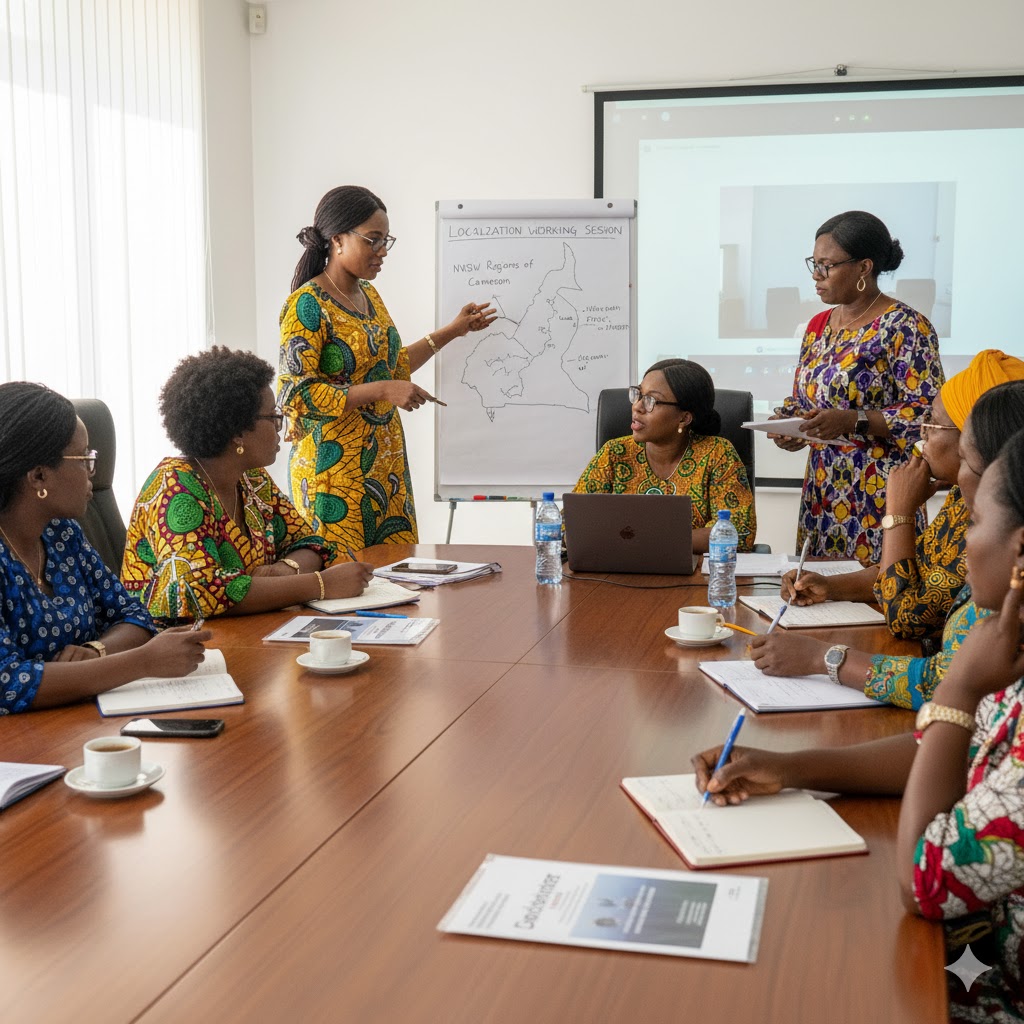Overall Goal:
To strengthen the institutional, technical, and advocacy capacity of Women-Led Organizations (WLOs) in the crisis-affected North West and South West regions of Cameroon to effectively prevent and respond to Gender-Based Violence (GBV) and contribute to sustainable community resilience.
Specific Objectives
- Enhance Technical Knowledge and Skills on GBV Prevention and Response
Build the capacity of WLO leaders and members on GBV concepts, forms, causes, consequences, survivor-centered approaches, and referral pathways to improve frontline community-based prevention and response.
- Strengthen Organizational and Institutional Capacities of WLOs
Support participating organizations to develop internal governance structures, strategic plans, and standard operating procedures that enhance accountability, coordination, and sustainability of their interventions.
- Improve Advocacy and Networking for Gender Equality and Protection
Equip WLOs with advocacy and communication skills to engage local authorities, humanitarian actors, and communities in promoting gender equality, challenging harmful social norms, and influencing GBV-related policies and practices.
- Facilitate Collaboration and Integration within Humanitarian Coordination Mechanisms
Link WLOs to protection clusters, gender working groups, and humanitarian coordination platforms to ensure their active participation and representation in decision-making and response planning at local and regional levels.
- Develop and Implement Tailored Capacity-Building and Mentorship Programs
Design and deliver ongoing mentorship, coaching, and peer-learning programs focusing on leadership, resource mobilization, project management, and monitoring and evaluation to sustain long-term institutional growth.
- Establish Community-Based Support Systems for Survivors of GBV
Empower WLOs to set up and manage safe community spaces for women and girls, providing psychosocial support, information, and referrals to appropriate service providers while fostering collective healing and resilience.
- Promote Localization and Sustainability of GBV Interventions
Encourage local ownership by equipping WLOs with the tools and strategies to mobilize local resources, document impact, and sustain gender-transformative programming beyond donor-funded cycles.
By achieving these objectives, the project will transform WLOs from under-resourced volunteer groups into professional, coordinated, and resilient actors capable of driving long-term gender justice, protection, and peacebuilding in the NWSW crisis context.
We strongly recommend the implementation of the findings of the assessment

